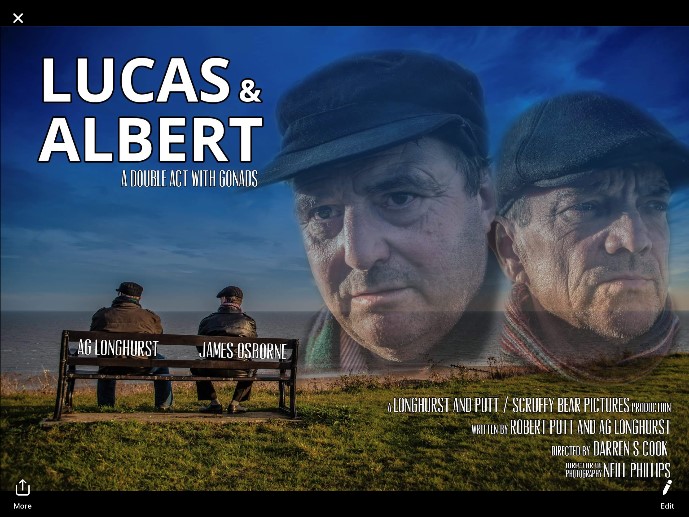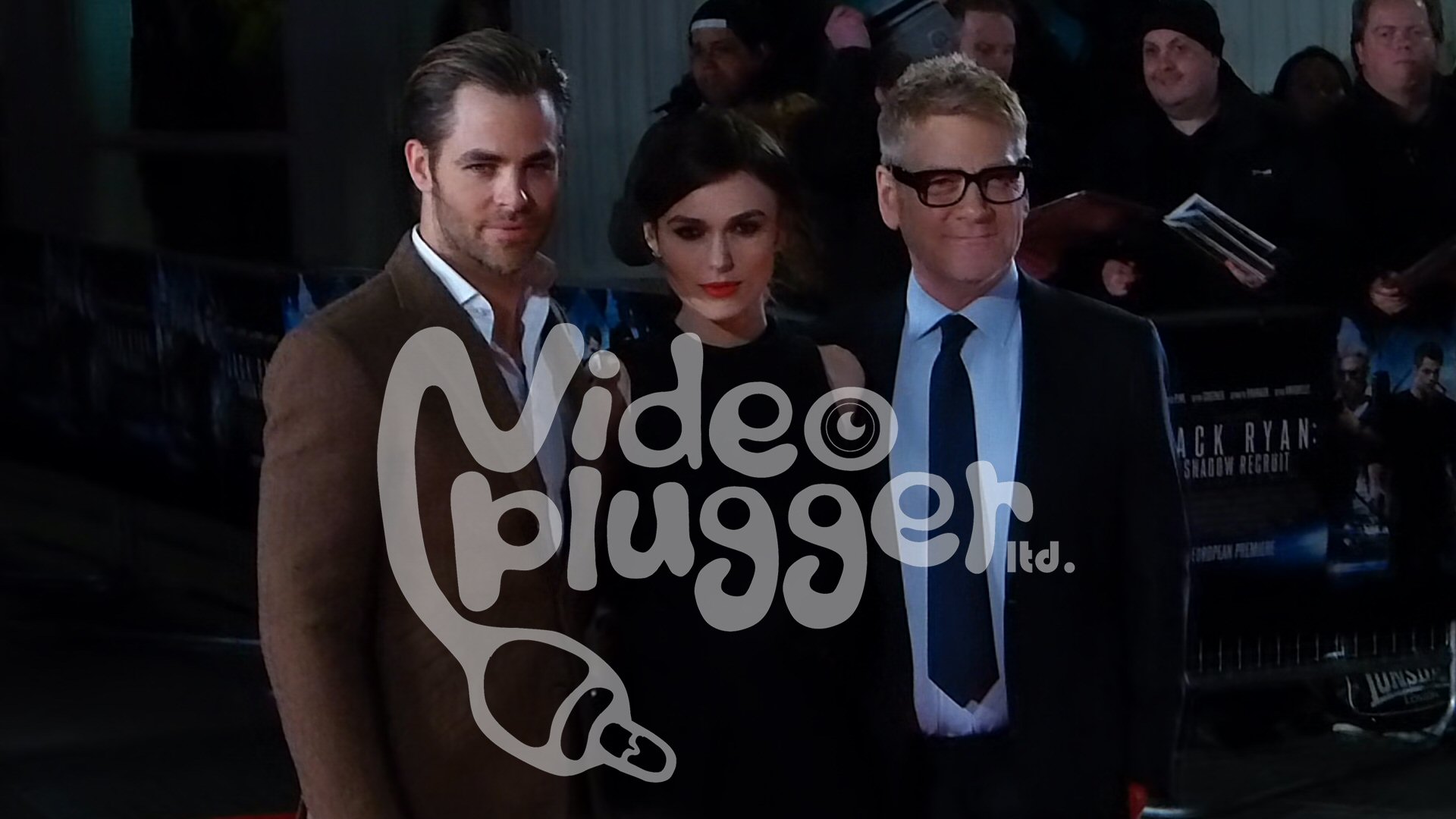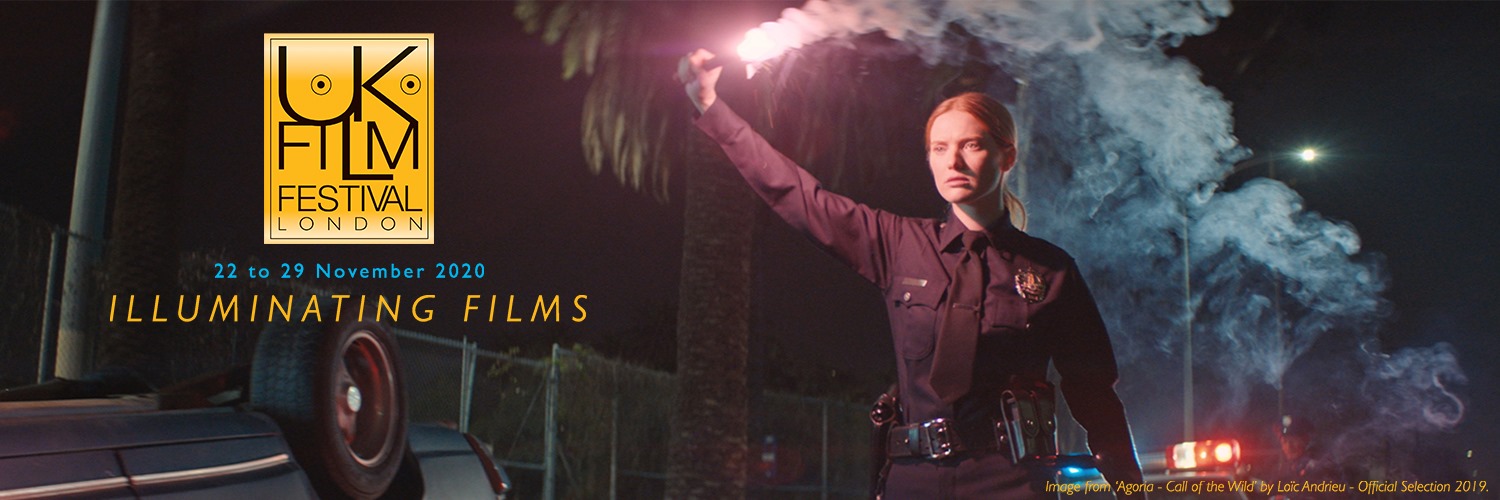A genre that seems to know no defeat and is part of a long tradition within British cinema, the gangster movie plunges into dark comedy with Lucas and Albert, 2019 feature film directed by Darren S. Cook, winner of Best Feature Film at 2020 National Film Award. Film director Darren S. Cook is not new to the film industry and had previously directed several shorts, including Broken Silence, which won a Coup de Coeur prize in the Short Film Corner at the 2010 Cannes Festival. Lucas and Albert is the result of the collaboration between him, his independent film company Scruffy Bear Pictures and the writing duo A. G. Longhurst and Robert Putt, heads of Longhurst and Putt Productions. A. G. Longhurst also plays the leading role in the film, among fellow actor and long-time friend James Osborne, with whom he has also previously worked in films as Ten Percent and Hatton Garden The Heist.
Together they are Lucas and Albert, two aging hitmen commissioned to clean up a bank robbery from 20 years ago, and sent to a small coastal town in north-east Essex, to finish their last work before retirement. The two don’t know each other but seem to have an immediately good connection, at least according to the locals, that tend to regard them as a gay couple. In reality, the two of them couldn’t be any more different from each other: Albert is a lone wolf, accustomed to working alone, meticulous and punctual, and with a passion for musicals, transmitted to him by his now-deceased wife, to whom he is still deeply attached, while Lucas, before becoming a hitman, served in the army; he’s passionate about food and sex, doesn’t believe in love or in any philosophy, which is prone to demolish. Moreover, he suffers from mysterious intestinal problems, the effects of which make it more difficult for his colleague to live with him. The two form a duo more comic than criminal, odd and usual, which combines comedy and existentialism in a dark and noir atmosphere, that the choice of black and white cinematography intensifies. Alternating moments of gags with the main narrative line, the film seems to be structured as a sequence of sketches, short comic performances of the comedic duo, interspersed with a musical break that seems to mark the end of one act and the beginning of the new one. Sketches and murders, however, are not arbitrarily juxtaposed with each other: as if we see the characters at 360 degrees, both in private and working life, but aware of the overlap between one and the other, their humour remains tangible, even in the crudest scenes, which are so blended with the rest of the film keeping alive its essence of black comedy. The intertwining of the two components is given, on a narrative level, by the fact that the designated victims are all old acquaintances and collaborators of Albert, and just like him and his colleague Lucas, no longer “spring chicken”.

With the choice of both primary and secondary characters who have already left behind the flower of youth, the film also shows a tendency towards social realism, focusing on a category at the centre of moral and social issues. The irony is the main ingredient: from the pizza delivery ‘boy’ to Albert’s mother-in-law in the nursing home, almost all the faces that peep out of the frame are over 60 and show an approach to life that is both cynical and resolute, a bit like that of the detectives of a hardboiled noir, the same approach that is the very pulsating vein of the film and creates a new element of detachment from the gangster movie genre, from which we would expect the same philosophy of life, but associated with protagonists of different age and appearance, and at the same time intensifying the scope of their black humor.
One could certainly argue that the genre referred to, precisely because of its relentless popularity, is not new to contaminations of various kinds, possibly leading to a reduction of novelty and surprise for a new entry in the category. It is enough to think of a title such as Pulp Fiction by Quentin Tarantino to understand how there is no lack of precedents in mainstream culture that have combined violence and comedy. The juxtaposition to this genre is perhaps not entirely successful for Lucas and Albert, which could have benefited more from the choice of a different category than that of the gangster movie to fully express its potential. And the film is not lacking in references, both in form and in content: with its comic sketches is very reminiscent of a stage play, perhaps that of a pub theater, a Fringe, as Lucas recalls in one of his exquisitely pop conversations with Albert, to show him its knowledge of the contemporary art scene, in response to him being a music connoisseur. And speaking of music, other than theatre, how not to reference the very logline of the film, which refers to another internal quote: “a double act with gonads’’, which draws on the comedic duo of music hall and vaudeville theatre. As well as not missing a clearly meta quote: “never let the truth come in the way of a good story”. A piece of advice that, a bit like the gangster movie, never goes out of fashion.





